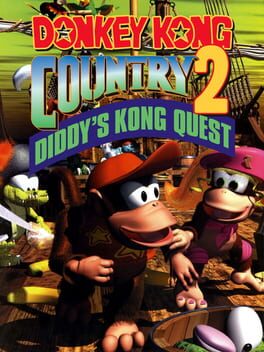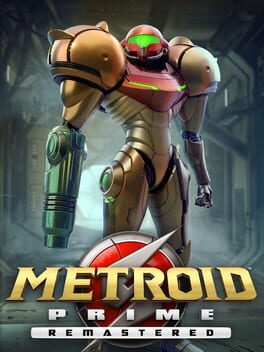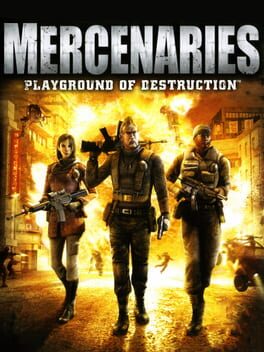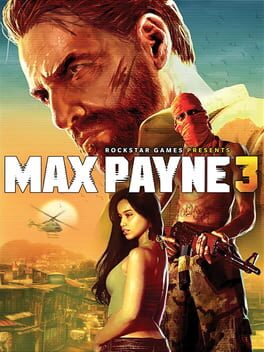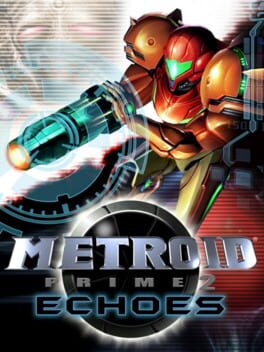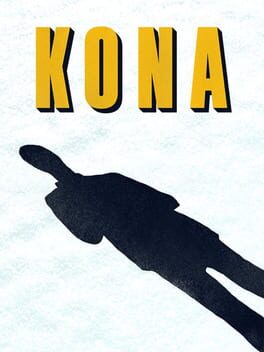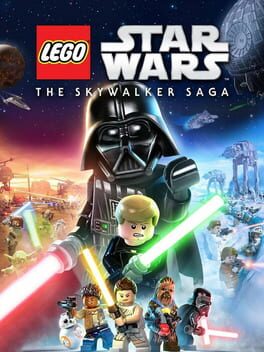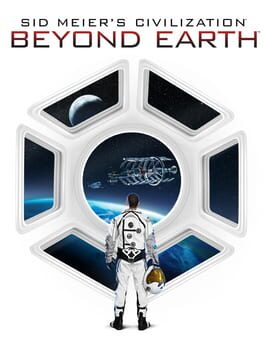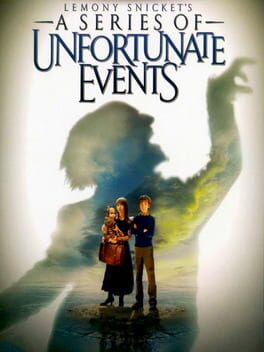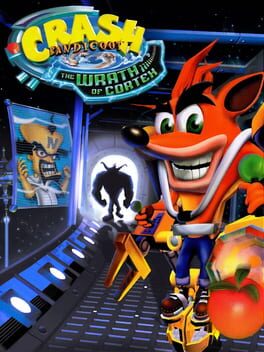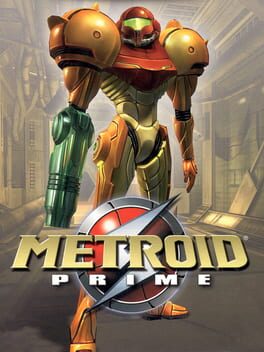52 Reviews liked by Pat_N
This review contains spoilers
I never finished the original metroid prime, I got pretty close after giving up in the phazon mines saying "I'm just not having enough fun, and this game is too long". well, I've finished it now and honestly, my opinion of the game has gotten worse! I already thought that metroid prime was a mixed bag of a game, the opening bits full of a sense of fun that quickly gives way to drudgery around the moment you pick up the varia suit. while the game is pretty fun when you're making forward advancements, the game increasingly becomes backtracking slowly through rooms that may as well have been loading screens, and the final hours of the game being spent on a pointless quest to backtrack through areas you have already done hours of backtracking through to find items that do nothing but unlock the end of the game, only to be rewarded with two bad boss fights and one of the worst final zones in any video game. all that said, there are some tangible improvements over the original with the new control options and the remastered visuals are gorgeous
Arguably doesn't get enough love for how its open world gameplay and faction-based enemy/ally AI laid the ground work for future games to come. So many interesting options to take that offered a lot of replayability. I poured many hours into this in high school, and it was such a joy to just dick around across the map. All the fun of going on sprees in GTA games, BUT YOU COULD ALSO DESTROY BUILDINGS. And once I found the code to unlock Indiana Jones, I turned into a little anarchistic archeologist.
Max Payne 3
2012
Firstly I can understand the gripes fans of Max Payne had with this one. Stark contrast in setting, combat relies on cover and Max feels very heavy and the story isn't everyone's thing. For me though, it's my favourite one. I am personally a big fan of the story, this is the first time we actually see Max alone and grieving, the use of real cutscenes and motion capture really allowed James McCaffrey to be more expressive as Max who is dealing with alcoholism to get through the days (maybe why I like this one so much, I have been the same way for a brief time in my life). It's interesting that the plot ultimately comes down to Max helping others live the life he lost long ago. The combat is a little different to the first 2, but is still very well made and engaging, this was actually the most challenging one for me. The soundtrack is brilliant where the previous entries mostly only had such for cutscenes, a very good reflection of the haunting and sombre ambient feeling of Max's journey. Overall I think this was a very nice change of pace for Max's final battle, sad that Rockstar didn't make more games like this.
Another game from my childhood where I played the majority of the game before dropping it for, in this case, decades. I'm a big fan of the original Metroid Prime, having played it through several times, but I never actually finished the other two in the trilogy. I remember being rather frustrated with this game, but as an adult I found it a lot more manageable than I did as a teenager. That being said, the main mechanic of the game is the light world/dark world split which, while not as bad as I remember, still isn't great. It ends up feeling like you have to play through each area twice; there isn't enough variety between the two to really make them that interesting, and it ends up making backtracking or remembering future points of interest much more tedious. This game also introduced limited ammunition for Samus which was a big point of contention when I was younger, but I actually didn't find it too hard to manage, although I would argue it may not have really been necessary.
Kona
2017
Kona starts off strong, driving through the blustering snowstorm, piecing together an odd mystery and navigating the world with your map, visiting each house along the path for more clues. I'm not sure if this game wasn't finished or what but as it gets closer to its conclusion it really starts to fall apart and devolves into lame nonsense by the ending. It's a bit of a "they had us in the first half ngl" situation but I still don't regret checking it out.
Kona
2017
Enjoyable for all of an hour or so. Then it breaks down to a tedious back and forth, driving up and down, looking for items so you can progress the story with no direction at all, you must find everything by yourself combined with an inconsistent checkpoint system. The game doesn't even try to give you a hint of where to go next.
Did I have fun with this game? Yeah. I can say I had fun, which when it comes to Lego games is the only thing that really matters. However, I can't help but feel throughout my playthrough that this game was missing that special spark that made its predecessor special.
It's not a secret that this game fully plays into our nostalgia for Lego Star Wars: The Complete Saga. The game was a large part of many of our childhoods and Skywalker Saga plays into it fully. However, the game comes off as a lazy and uninspired imitation, and of its many delays its missing key features and content that not only the complete Saga had, but most modern Lego games contain. Key parts from the films are missing such as the Battle of Coruscant and the Death Star 2 replacing them with boring boss fights or uninspired levels to make up time. The entirety of ROS was a major disappointment, as the entire film was just Boss Fight after Boss FIght. Most of the levels and puzzles feel repetitive and lazy making the later films a jog to play, and half of the roster is just costumes for known heroes. Also, the exclusion of Character creation was an awful decision that has no reason to not be in the game.
The ship levels in-game are some of the highlights in its defense. Ship combat can be fun and excited, and the Death Star Run and The Battle of Hoth are two of the best levels in the game by a long shot.
As for the collectibles, it's a mixed bag. getting True Jedi and the Minikits are still fun little distractions in levels that help escape boredom, but the planetary overworld of the hidden blue bricks is a total chore. I wanted to attempt to 100% this game such as TCS, however, after almost 4 hours of collecting on Naboo realizing that I had been doing nothing productive, I gave up. Besides boring upgrades, I found no real reason to collect these things and I have no idea why the maps aren't filled with more side quests instead of these monotonous blue bricks.
For a game hyped to be "The Best Lego Game Ever" it truly feels like it's missing what made most of the classics special. Maybe I have grown up and I bet a kid right now is loving the game, but as a Star Wars Fan and Lego Fan, I feel like this game was lacking.
It's not a secret that this game fully plays into our nostalgia for Lego Star Wars: The Complete Saga. The game was a large part of many of our childhoods and Skywalker Saga plays into it fully. However, the game comes off as a lazy and uninspired imitation, and of its many delays its missing key features and content that not only the complete Saga had, but most modern Lego games contain. Key parts from the films are missing such as the Battle of Coruscant and the Death Star 2 replacing them with boring boss fights or uninspired levels to make up time. The entirety of ROS was a major disappointment, as the entire film was just Boss Fight after Boss FIght. Most of the levels and puzzles feel repetitive and lazy making the later films a jog to play, and half of the roster is just costumes for known heroes. Also, the exclusion of Character creation was an awful decision that has no reason to not be in the game.
The ship levels in-game are some of the highlights in its defense. Ship combat can be fun and excited, and the Death Star Run and The Battle of Hoth are two of the best levels in the game by a long shot.
As for the collectibles, it's a mixed bag. getting True Jedi and the Minikits are still fun little distractions in levels that help escape boredom, but the planetary overworld of the hidden blue bricks is a total chore. I wanted to attempt to 100% this game such as TCS, however, after almost 4 hours of collecting on Naboo realizing that I had been doing nothing productive, I gave up. Besides boring upgrades, I found no real reason to collect these things and I have no idea why the maps aren't filled with more side quests instead of these monotonous blue bricks.
For a game hyped to be "The Best Lego Game Ever" it truly feels like it's missing what made most of the classics special. Maybe I have grown up and I bet a kid right now is loving the game, but as a Star Wars Fan and Lego Fan, I feel like this game was lacking.
Control
2019
CONTROL's themes and presentation are so cool and addicting that the Oldest House is likely to go down as one of my favorite video game locations of all time. The production design across the game is so mysteriously enticing that I kept wanting to come back to the game whenever I wasn't there. Combined with collectibles that build the world, and I was hooked for 9/10's of my playthrough.
However, that last tenth of my immersion was ruined by HOW this game handles its world-building secrets. I don't understand why so many games fail to grasp what BIOSHOCK knew all the way back in 2007: DON'T MAKE ME HAVE TO STOP THE GAME TO INTERACT WITH LORE ITEMS. You literally have to put the controller down and wait for audio logs, video messages, and episodes of TV shows to play out in full. It's such a momentum killer. Just make it all strictly audio and let it play in the background!
It's a real pain, because the exploration and combat mechanics in this are so fun and well rounded that said interruptions truly sting. Running, dodging, gunning down enemies in front of you while telekinetically throwing items at flanking enemies all combine into some exhilarating combat experiences.
The only time it goes awry is when the game's own visuals screw you over. This game has a limited color pallet: Red, Grey, White, and Black. And when your black-clad character is fighting black-clad enemies in a dark, shadowy room, you'll frequently get killed by projectiles that you couldn't TELL were projectiles because they mix in with all of the OTHER PARTICLE EFFECTS. The number of baffling deaths I suffered were too many.
Despite my gripes, I'm very eager to keep exploring and see what the Ultimate Edition's DLC entails. The FBC is too intriguing of a world for me to leave behind, even with the breaches in its structure.
However, that last tenth of my immersion was ruined by HOW this game handles its world-building secrets. I don't understand why so many games fail to grasp what BIOSHOCK knew all the way back in 2007: DON'T MAKE ME HAVE TO STOP THE GAME TO INTERACT WITH LORE ITEMS. You literally have to put the controller down and wait for audio logs, video messages, and episodes of TV shows to play out in full. It's such a momentum killer. Just make it all strictly audio and let it play in the background!
It's a real pain, because the exploration and combat mechanics in this are so fun and well rounded that said interruptions truly sting. Running, dodging, gunning down enemies in front of you while telekinetically throwing items at flanking enemies all combine into some exhilarating combat experiences.
The only time it goes awry is when the game's own visuals screw you over. This game has a limited color pallet: Red, Grey, White, and Black. And when your black-clad character is fighting black-clad enemies in a dark, shadowy room, you'll frequently get killed by projectiles that you couldn't TELL were projectiles because they mix in with all of the OTHER PARTICLE EFFECTS. The number of baffling deaths I suffered were too many.
Despite my gripes, I'm very eager to keep exploring and see what the Ultimate Edition's DLC entails. The FBC is too intriguing of a world for me to leave behind, even with the breaches in its structure.
In 2015, Disney subsidiary Lucas Films released Star Wars Episode VII: The Force Awakens. A retelling of '77s A New Hope with flashier special effects and bombastic cinematography. Despite this new coat of paint, The Force Awakens struggles to juggle both a decades old, tried and true legacy and a handful of contemporary tropes to bring Star Wars into the modern age. Almost in parody of the infamous "Ring Theory", Travelers Tales have suffered much the same fate.
LEGO™ Star Wars™: The Skywalker™ Saga is an overproduced and overdemanding game. Crunch has always been an issue with game development, but with The Skywalker™ Saga we see a new result of crunch, that being a game with several unneccesarily added brand new mechanics which both don't mix with the tried and true LEGO™ format, as well as add hours upon hours of monotony to this new entry in the already notorious backlog of lengthy games.
One of the many new features is the addition of Skill Trees: both a core upgrade tree for all characters, and a smaller tree for each of the 9 classes present in the game. Frankly, I forgot these existed. Any given combat upgrade is rendered meaningless by the inherrent low difficulty of the game. This isn't an insult to the game itself, branded LEGO™ games have been firmly planted in the casual catagory since 2005, but the new skill trees aim to improve an unbroken problem.
On the subject of half-baked mechanics, the game now also includes a meaningless choice system. On multiple occasions, you the player can choose to build either a stealth option or a combat option. For example, The first level of Episode 4 brings players to a hallway with two doors and two building options. The first is a turret facing a corridor full of Stormtroopers™, the other is an emptier corridor of conveniently the same length used to simply walk around the troopers. The only difference between the two is that the fighting option gives you a headstart, as the corridors both lead to the same room and the Stormtroopers™ are likely to spot you as you walk around behind them.
Everything has been gamified to comical levels. Opening a door requires inputting a password into a terminal, and getting that password requires going to a different terminal and finishing a button mash minigame. After the 50th "Rotate the Wheels" puzzle, I found myself missing the good old days when R2D2 used to just open the door all on his own like a big boy.
Not all changes are for the worse, however. Some of the core upgrades take the place of what were once extras, things such as Stud Magnets or faster build speeds. The concept of a whole universe sandbox also is a fun one. I always enjoy when Star Wars™ games acknowledge the huge universe of planets and it would be great traveling around them all if not that every planet has the same thing to offer, which is more collectables.
Despite the majority of this review being negative, I don't actually hate LEGO™ Star Wars™. Sometimes I enjoyed it, sometimes I was bored by it. I mostly just found the similarities between my attitude towards this game and my attitude towards the new trilogy to be interesting. I would definitely recommend only finishing the story mode though, collecting everything optional would be an act of self harm.
LEGO™ Star Wars™: The Skywalker™ Saga is an overproduced and overdemanding game. Crunch has always been an issue with game development, but with The Skywalker™ Saga we see a new result of crunch, that being a game with several unneccesarily added brand new mechanics which both don't mix with the tried and true LEGO™ format, as well as add hours upon hours of monotony to this new entry in the already notorious backlog of lengthy games.
One of the many new features is the addition of Skill Trees: both a core upgrade tree for all characters, and a smaller tree for each of the 9 classes present in the game. Frankly, I forgot these existed. Any given combat upgrade is rendered meaningless by the inherrent low difficulty of the game. This isn't an insult to the game itself, branded LEGO™ games have been firmly planted in the casual catagory since 2005, but the new skill trees aim to improve an unbroken problem.
On the subject of half-baked mechanics, the game now also includes a meaningless choice system. On multiple occasions, you the player can choose to build either a stealth option or a combat option. For example, The first level of Episode 4 brings players to a hallway with two doors and two building options. The first is a turret facing a corridor full of Stormtroopers™, the other is an emptier corridor of conveniently the same length used to simply walk around the troopers. The only difference between the two is that the fighting option gives you a headstart, as the corridors both lead to the same room and the Stormtroopers™ are likely to spot you as you walk around behind them.
Everything has been gamified to comical levels. Opening a door requires inputting a password into a terminal, and getting that password requires going to a different terminal and finishing a button mash minigame. After the 50th "Rotate the Wheels" puzzle, I found myself missing the good old days when R2D2 used to just open the door all on his own like a big boy.
Not all changes are for the worse, however. Some of the core upgrades take the place of what were once extras, things such as Stud Magnets or faster build speeds. The concept of a whole universe sandbox also is a fun one. I always enjoy when Star Wars™ games acknowledge the huge universe of planets and it would be great traveling around them all if not that every planet has the same thing to offer, which is more collectables.
Despite the majority of this review being negative, I don't actually hate LEGO™ Star Wars™. Sometimes I enjoyed it, sometimes I was bored by it. I mostly just found the similarities between my attitude towards this game and my attitude towards the new trilogy to be interesting. I would definitely recommend only finishing the story mode though, collecting everything optional would be an act of self harm.
I played this instead of actually watching the movie, and documented my findings: https://youtu.be/lB_LJ1Xs_6c
Metroid Prime
2002
I struggle with Metroid Prime. That's not to say I find it overly difficult nor is it a bad game. On the contrary, I think Prime is a wonderful game 90% of the time and that is exactly why I struggle with it. As it stands, the game has a few design choices and gameplay mechanics that hold the game back from reaching the heights it nearly reached. When it's good, Prime is the best Metroid game on earth. When it's bad, I feel like throwing the stupid disc into the nearest toilet. The game is, as I said, fantastic 90% of the time—a large majority. It's just that remaining 10% that drives me insane.
I write this coming from the perspective of someone that is experienced in first-person shooters. I've played my fair share of Call of Duty, Halo, and Left 4 Dead. In comparison, Prime comes across as limited in movement, a far cry from the Super or Fusion. Without dual analog controls, aiming with precision is hardly an option. You are forced to either lock on your shot or hold your position to aim (which is still limited). Beyond shooting down weak enemies in your way, there is no running and gunning in Prime. Thankfully, the game's level design and combat are mostly designed around this limitation. Generally, enemies are not trying to get behind you and there's plenty of time to lock on and shoot. Even enemies that rush towards you telegraph their attack so you have time to dash around them. Eventually, I got used to how Prime plays and started to enjoy it more. Overall, controlling Samus is actually not too bad for the majority of game time.
Massive asterisk coming up, though. The other 10% is a goddamn nightmare. A shame too, because it almost exclusively culminates in a choice few bosses. These fights often posed a challenge—a challenge to properly lock on, dodge, and shoot. When I say challenge, I don't mean that in the most flattering of ways. Often bosses felt unfair—not hard per se—because I couldn't see where I was going. Between the limited controls and claustrophobic FOV, it's hard to feel in control when some big monster is constantly in your face. If I needed to escape from a close encounter with a boss, I often fumbled around trying to figure out what the hell was ever going on. The Omega Pirate is THE example; I never felt like I could get a good enough distance from him because, by the time I ran away and turned around, he was already closing in on me again. There were times where I couldn't see (limited vision) and it was hard to get into a better position (limited controls). This is literally only because turning in this game is so goddamn slow and, to a lesser fault, is in 4:3. Again, it isn't usually a problem because most enemies are designed around the shooting mechanics. In this case, however, I feel nearly claustrophobic when he closes in on me and I've backed myself into a wall. I don't think it was even the boss himself that was the problem, it was the game's limitations that really killed it for me. There's something to be said about designing a game within its limitations. Metroid II did this fantastically, for as much as it isn't an incredible game. Prime occasionally bites off more than it can chew, unfortunately.
There are, of course, other bosses. Meta-Ridley, for as much as I want to love him, is a bit of a disappointment in terms of gameplay. When he flies away, you're left there for about half a minute just waiting for him to return. It looks cool seeing him fly out there, but there's a bit too much waiting. When he eventually lands, the fight becomes a matter of simply jumping to the side and, again, waiting for your chance to strike. Isn't the whole point of Ridley's fights to be nonstop action? In the 2D games, he always dies too quickly, but at least it remains consistent with the type of fight it's supposed to be: A quick fight to the death. Prime's hellbent on making you wait to attack Meta-Ridley but I would've rather he have more aggressive attacks and a larger hitbox. Likewise, Thardus is an underwhelming boss that takes an eternity to beat. He hardly changes his attacks (none of which are challenging to dodge) and it takes upwards of 10 minutes to beat him. What an uninteresting slog. Maybe when you're designing a boss, don't make it both long and uninteresting?
If it weren't obvious, I don't particularly like most of the bosses in this game, because I don't feel they typically play to the game's strengths in design. They are, in fact, solely the 10% I was referring to. These few bosses take away from what could've been awesome encounters with deadly and huge creatures. That's not to say every boss is bad, though. The best bosses in the game, namely Flaahgra, involve you rotating around the boss, rather than actively trying to get away. The final boss's first phase is actually pretty cool (if a bit long) because it remains mostly in the same place while the two of you trade blows from afar. That was one of the few boss fights where I never felt as though I was being unfairly punished because of limited controls. The second phase gets close to entering that 10% but it's interesting enough that I don't mind the frustration so much.
Bosses were never my favorite thing about Metroid and, more than ever, Prime's strengths lie elsewhere. For as much as I rag on the boss fights, I actually like the way Samus controls when I'm not asked to move in uncomfortable ways. Jumping from platform to platform, locking onto an enemy and having a shootout, or rolling around as the morph ball—all of these are a delight. I really felt as though I was seeing this world through the eyes of Samus. It's during these moments that I'm glad I'm not playing some fast-paced shooter—I am a powerful bounty hunter that will overcome any challenge. Even if it means being a tad slow, I don't simply have a tiny sub-machine gun. I have an arm cannon, and that's rad as hell.
I may have gripes with Prime (I just spent multiple paragraphs detailing my one severe criticism), but the game is otherwise a fantastic transition to 3D. Exploring, along with fighting normal enemies, is not hampered by limitations, which is a blessing because the world of Tallon IV is detailed, rich, and intriguing. I've said before that the world of Super Metroid, Zebes, felt alive but this is on another level. Every location, every set piece—it all feels like it belongs. The best part? It's not simply in the background, it's surrounding you at every turn and you are seeing it with your own eyes. This is a world that is much bigger than you. You are but a lone bounty hunter on this massive planet with structures far taller than yourself. It isn't totally hostile, only uncaring of your own presence. You've come into contact with a hollow world, with its civilization long since passed. The Chozo once built this awe-inspiring world, only for it to now lay in ruin. It's hard to tell where the Chozo's architecture ends and nature begins, not to mention the Space Pirates' influence. Traversing each location, there's always something to find, something to ponder on. The atmosphere and world-building give purpose to exploration; I felt like the world was truly corrupt and I wanted to find out why. My answers came in the form of the Chozo logs, which were implemented perfectly. A player can either choose to learn more about the world's lore or ignore it all together, it doesn't change your mission. These logs are merely context for why Tallon IV is in this state of being.
I really value "ideas" in games. Experiences that are new and exciting, be it gameplay mechanics or story elements, are what I look for. These ideas are like little sparks in my eyes, things that undeniably catch my attention. Sometimes, an idea can surpass what is either technically "good" or "bad." Prime is not a perfect game and it has limitations, but it's packed to the brim with all sorts of incredible ideas. What makes Prime so great is the "idea" that Tallon IV is a character within itself. We are experiencing the world alongside Samus and witnessing the corruption of what was once a beautiful land. The adventure is not about the bosses, Meta-Ridley, or even Samus—it was the world that took center stage. This was a truly fresh and forward-thinking way of progressing the Metroid series.
*This review was originally written as a note for my Metroid: Best to Worst list.
I write this coming from the perspective of someone that is experienced in first-person shooters. I've played my fair share of Call of Duty, Halo, and Left 4 Dead. In comparison, Prime comes across as limited in movement, a far cry from the Super or Fusion. Without dual analog controls, aiming with precision is hardly an option. You are forced to either lock on your shot or hold your position to aim (which is still limited). Beyond shooting down weak enemies in your way, there is no running and gunning in Prime. Thankfully, the game's level design and combat are mostly designed around this limitation. Generally, enemies are not trying to get behind you and there's plenty of time to lock on and shoot. Even enemies that rush towards you telegraph their attack so you have time to dash around them. Eventually, I got used to how Prime plays and started to enjoy it more. Overall, controlling Samus is actually not too bad for the majority of game time.
Massive asterisk coming up, though. The other 10% is a goddamn nightmare. A shame too, because it almost exclusively culminates in a choice few bosses. These fights often posed a challenge—a challenge to properly lock on, dodge, and shoot. When I say challenge, I don't mean that in the most flattering of ways. Often bosses felt unfair—not hard per se—because I couldn't see where I was going. Between the limited controls and claustrophobic FOV, it's hard to feel in control when some big monster is constantly in your face. If I needed to escape from a close encounter with a boss, I often fumbled around trying to figure out what the hell was ever going on. The Omega Pirate is THE example; I never felt like I could get a good enough distance from him because, by the time I ran away and turned around, he was already closing in on me again. There were times where I couldn't see (limited vision) and it was hard to get into a better position (limited controls). This is literally only because turning in this game is so goddamn slow and, to a lesser fault, is in 4:3. Again, it isn't usually a problem because most enemies are designed around the shooting mechanics. In this case, however, I feel nearly claustrophobic when he closes in on me and I've backed myself into a wall. I don't think it was even the boss himself that was the problem, it was the game's limitations that really killed it for me. There's something to be said about designing a game within its limitations. Metroid II did this fantastically, for as much as it isn't an incredible game. Prime occasionally bites off more than it can chew, unfortunately.
There are, of course, other bosses. Meta-Ridley, for as much as I want to love him, is a bit of a disappointment in terms of gameplay. When he flies away, you're left there for about half a minute just waiting for him to return. It looks cool seeing him fly out there, but there's a bit too much waiting. When he eventually lands, the fight becomes a matter of simply jumping to the side and, again, waiting for your chance to strike. Isn't the whole point of Ridley's fights to be nonstop action? In the 2D games, he always dies too quickly, but at least it remains consistent with the type of fight it's supposed to be: A quick fight to the death. Prime's hellbent on making you wait to attack Meta-Ridley but I would've rather he have more aggressive attacks and a larger hitbox. Likewise, Thardus is an underwhelming boss that takes an eternity to beat. He hardly changes his attacks (none of which are challenging to dodge) and it takes upwards of 10 minutes to beat him. What an uninteresting slog. Maybe when you're designing a boss, don't make it both long and uninteresting?
If it weren't obvious, I don't particularly like most of the bosses in this game, because I don't feel they typically play to the game's strengths in design. They are, in fact, solely the 10% I was referring to. These few bosses take away from what could've been awesome encounters with deadly and huge creatures. That's not to say every boss is bad, though. The best bosses in the game, namely Flaahgra, involve you rotating around the boss, rather than actively trying to get away. The final boss's first phase is actually pretty cool (if a bit long) because it remains mostly in the same place while the two of you trade blows from afar. That was one of the few boss fights where I never felt as though I was being unfairly punished because of limited controls. The second phase gets close to entering that 10% but it's interesting enough that I don't mind the frustration so much.
Bosses were never my favorite thing about Metroid and, more than ever, Prime's strengths lie elsewhere. For as much as I rag on the boss fights, I actually like the way Samus controls when I'm not asked to move in uncomfortable ways. Jumping from platform to platform, locking onto an enemy and having a shootout, or rolling around as the morph ball—all of these are a delight. I really felt as though I was seeing this world through the eyes of Samus. It's during these moments that I'm glad I'm not playing some fast-paced shooter—I am a powerful bounty hunter that will overcome any challenge. Even if it means being a tad slow, I don't simply have a tiny sub-machine gun. I have an arm cannon, and that's rad as hell.
I may have gripes with Prime (I just spent multiple paragraphs detailing my one severe criticism), but the game is otherwise a fantastic transition to 3D. Exploring, along with fighting normal enemies, is not hampered by limitations, which is a blessing because the world of Tallon IV is detailed, rich, and intriguing. I've said before that the world of Super Metroid, Zebes, felt alive but this is on another level. Every location, every set piece—it all feels like it belongs. The best part? It's not simply in the background, it's surrounding you at every turn and you are seeing it with your own eyes. This is a world that is much bigger than you. You are but a lone bounty hunter on this massive planet with structures far taller than yourself. It isn't totally hostile, only uncaring of your own presence. You've come into contact with a hollow world, with its civilization long since passed. The Chozo once built this awe-inspiring world, only for it to now lay in ruin. It's hard to tell where the Chozo's architecture ends and nature begins, not to mention the Space Pirates' influence. Traversing each location, there's always something to find, something to ponder on. The atmosphere and world-building give purpose to exploration; I felt like the world was truly corrupt and I wanted to find out why. My answers came in the form of the Chozo logs, which were implemented perfectly. A player can either choose to learn more about the world's lore or ignore it all together, it doesn't change your mission. These logs are merely context for why Tallon IV is in this state of being.
I really value "ideas" in games. Experiences that are new and exciting, be it gameplay mechanics or story elements, are what I look for. These ideas are like little sparks in my eyes, things that undeniably catch my attention. Sometimes, an idea can surpass what is either technically "good" or "bad." Prime is not a perfect game and it has limitations, but it's packed to the brim with all sorts of incredible ideas. What makes Prime so great is the "idea" that Tallon IV is a character within itself. We are experiencing the world alongside Samus and witnessing the corruption of what was once a beautiful land. The adventure is not about the bosses, Meta-Ridley, or even Samus—it was the world that took center stage. This was a truly fresh and forward-thinking way of progressing the Metroid series.
*This review was originally written as a note for my Metroid: Best to Worst list.
